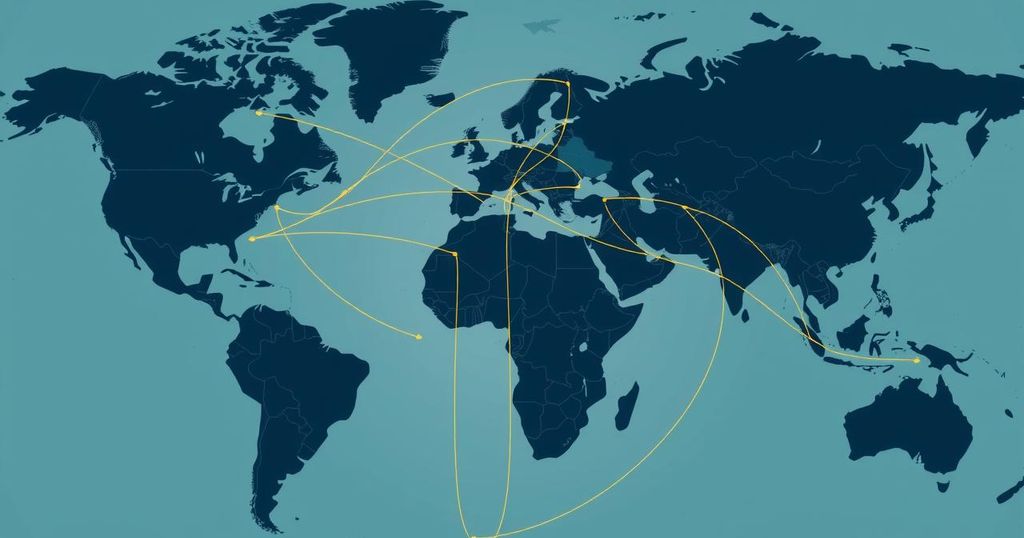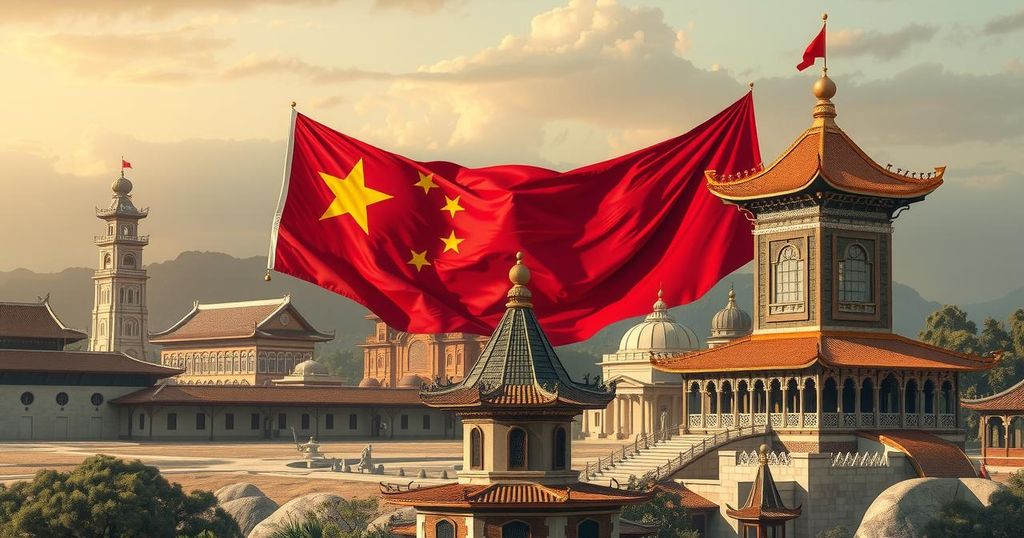U.S. Intel Report Designates India as Key Player in Fentanyl Trafficking
The U.S. identifies India and China as major suppliers of precursor chemicals for fentanyl production, contributing to the opioid crisis that has claimed over 52,000 American lives in a year. President Trump has prioritized combating this issue, implementing tariffs against non-compliant countries, while India seeks trade negotiations to alleviate potential impacts.
The United States intelligence community has identified India, alongside China, as a “state actor” involved in the supply of precursor chemicals for illicit fentanyl production by criminal organizations. Fentanyl, a highly lethal synthetic opioid, has been responsible for the deaths of over 52,000 Americans in the year leading up to October 2024, as reported in the Annual Threat Assessment (ATA) released recently.
The report states, “These groups [transnational criminal organizations or TCOs] are often enabled, both directly and indirectly, by state actors, such as China and India,” providing essential precursors and equipment for drug trafficking. While China remains the dominant source for these chemicals, India is notably recognized as the second most significant contributor.
This marks the first instance where the United States has explicitly categorized India alongside China concerning fentanyl precursor chemical supplies. Previously, India was mentioned among various countries contributing to the sourcing of chemicals, but at a lesser degree compared to China.
The timing of the report coincides with President Donald Trump prioritizing opioid combatting in his political agenda, influencing his foreign policy decisions. Trump has committed to eradicating the fentanyl epidemic in the United States and has imposed tariffs on countries that are perceived to be insufficiently addressing fentanyl trafficking, including a recent 10 percent tariff on China.
Furthermore, Trump has warned of reciprocal tariffs against several nations under his “Liberation Day” initiative, effective April 2. Notably, India is negotiating with the United States for a free trade agreement that could mitigate potential trade tax impacts.
The recent U.S. intelligence report highlights India’s role in the fentanyl trafficking supply chain alongside China, emphasizing the challenges posed by transnational criminal organizations. The report’s release aligns with President Trump’s political focus on combating the opioid crisis, resulting in renewed tariffs aimed at nations not adequately addressing the issue. As India seeks a free trade agreement with the U.S., the geopolitical landscape surrounding drug trafficking remains complex and dynamic.
Original Source: www.ndtv.com








Post Comment